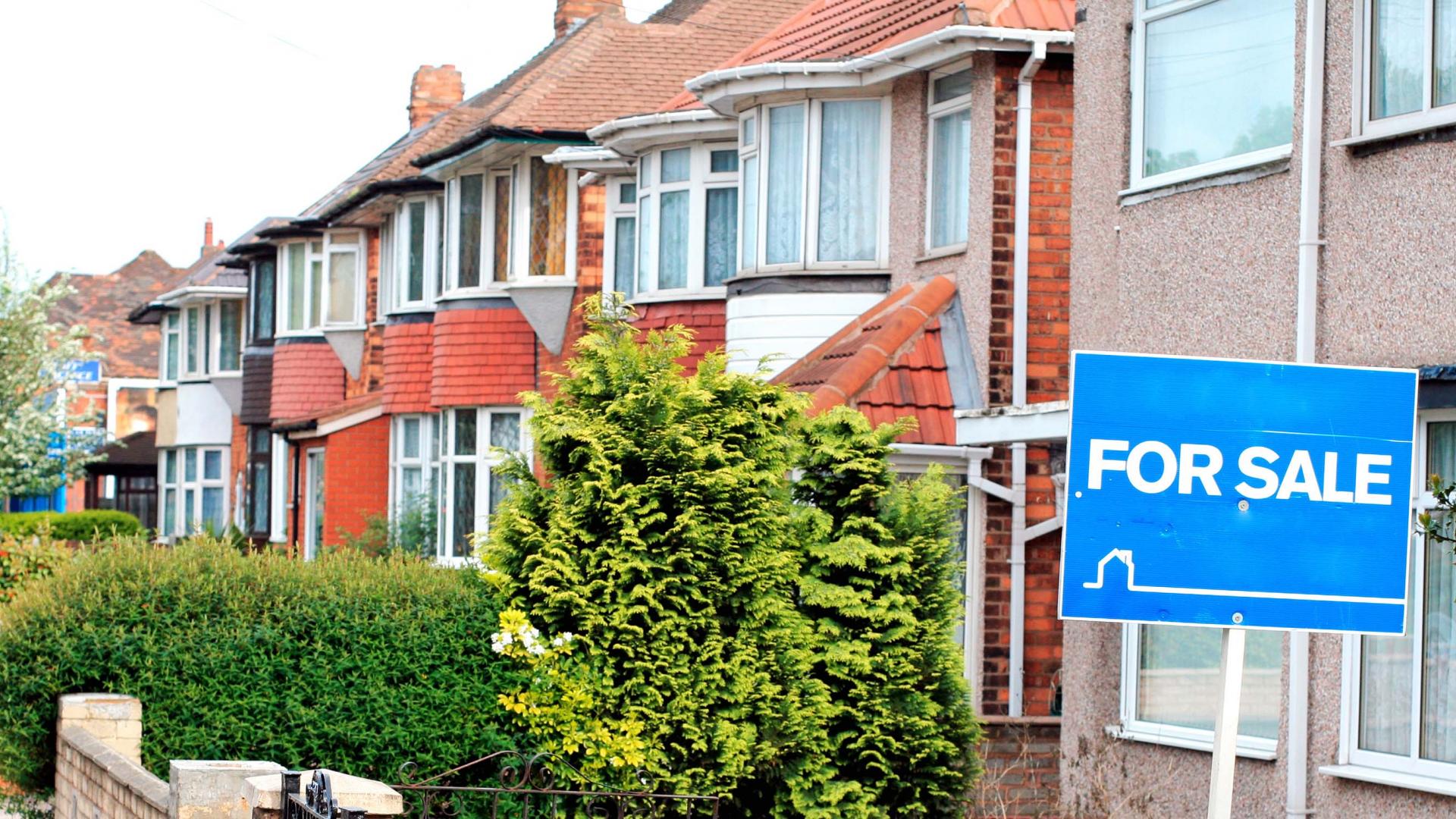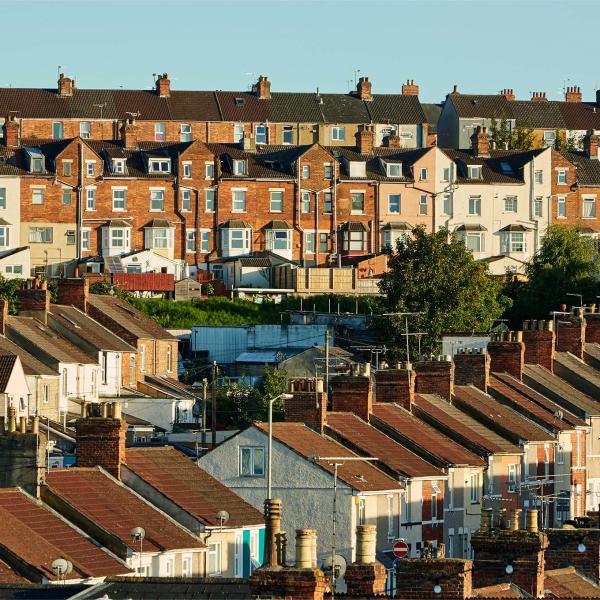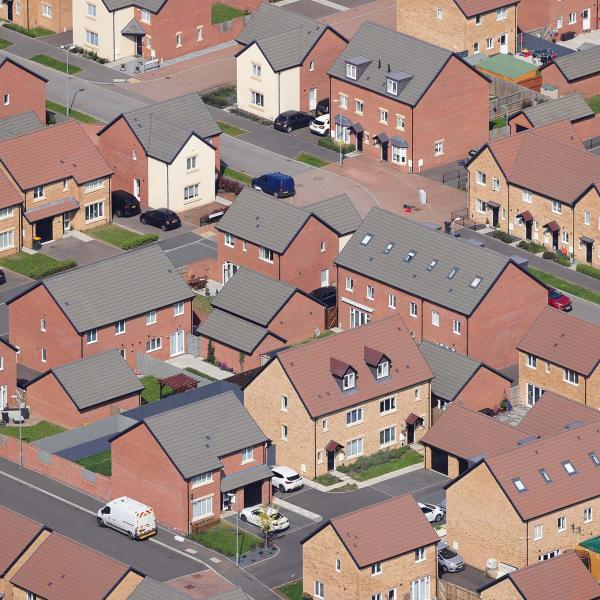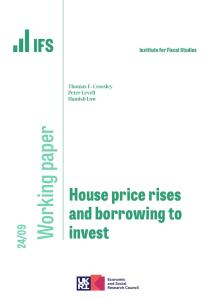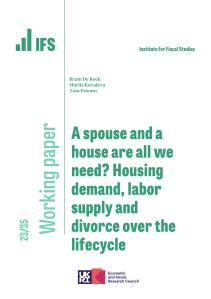This is my first column since the Christmas holidays, so I hope you will forgive me for starting by recalling a party I attended over the festive period. Not, I’m afraid, a recollection about the superb drink, stunning food or great company, but rather a reflection on the housing market.
The event was held in a large suburban house. It had once been home to a family, but is now occupied by a single man in his eighties, children long gone, wife deceased some years ago. A number of the guests were from a similar generation and in a similar position, still occupying the large family home, either alone or with a partner.
It’s not only those I meet at Christmas parties who are in this position. More than half of owner-occupied homes are under-occupied, in the sense of having two or more spare bedrooms. And this is a growing trend. On this definition, fewer than 40 per cent were under-occupied in the mid-1990s. Few renters under-occupy their accommodation. They have to pay hard cash for that spare space.
Being adept at the sort of small talk appropriate for such social gatherings, I quizzed a few of those present on their housing choices. “Why haven’t you moved somewhere smaller and more appropriate to your needs, unlocked the capital in your unnecessarily big house and made it available to someone who actually needs it?” It was not quite my conversational gambit, but I think they got the point.
Broadly speaking, I got two answers. First, moving house is a huge and time-consuming upheaval. Bluntly, if you’re in the last decade or two of life, you don’t want to waste a significant fraction of that time going through the sort of hassle involved in moving house. Fair enough.
Second, though, was stamp duty. Awareness of this as a significant cost and a disincentive to move seemed pretty much universal. Hurrah, I said, we economists are on just the same page. Of all the taxes levied at present, Stamp Duty Land Tax — the tax you pay on purchasing a property — has a pretty good claim to be the most damaging and pernicious of the lot. The more often you move, the more tax you pay. It gums up the housing market and, by extension, the labour market. Mutually beneficial transactions, for example an older person in a big house trading places with a younger family in a smaller house, are disincentivised.
This isn’t merely theory or anecdote, either. The best evidence we have is that stamp duty makes a big difference to the number of housing transactions. In a very careful study, Michael Best and Henrik Kleven, the latter a professor at Princeton, estimated that getting rid of a tax rate of only 1 per cent on purchases could increase housing transactions by as much as 10 per cent. If that’s even in the right ballpark, it suggests that even low rates of stamp duty are likely to be very damaging, and the very high rates we levy on expensive properties dramatically more so.
There are only two feasible excuses for the continued existence of stamp duty. The first is that it is a relatively easy way of raising tax. That’s why it was introduced in 1694, making it among the most venerable of all our taxes. But that, frankly, is no longer much of an excuse. We could perfectly easily raise the revenue that it brings in in other ways. Yet stamp duty has been increased time and again in recent years, reaching a top rate of 12 per cent on the most costly properties — and more for those buying a second property or who are not UK-resident.
The second is that it already exists. Abolishing it now would mean a windfall gain for, especially well-off, present home owners. Two responses to that: first, given that stamp duty has been increased over the past couple of decades, for a reasonable fraction of home owners, certainly most of those I was speaking to over Christmas, this would largely be a reversal of windfall losses imposed by previous increases; second, this could be at least partially undone by reforming council tax and raising it on more valuable properties.
Council tax is levied at a lower fraction of property value the more valuable is the property. That is inequitable. There is a single person discount, so single people occupying big expensive properties get a double bonus. And not having been updated in 30 years, it results in especially low rates of tax on family homes in London and the southeast.
It is likely that this is where my yuletide interlocutors and I would part company. I suspect they would not be keen on their council tax going up, even if stamp duty were cut. I understand the political problem. But the corollary of relatively low council tax, as a fraction of property value, enjoyed by the well-heeled occupants of expensive houses in London and the southeast is high tax on the occupants of less expensive properties, especially in the Midlands and the north.
Let me be clear. I am not saying anyone should be forced from their family home. What I am saying is that we absolutely should not be penalising those who want to move home. That is deeply damaging. I could make a better argument for subsidising such moves than for penalising them.
We hear much about the housing crisis and the crisis of housing affordability. We hear rather less about the millions of houses that are underutilised and often bigger than their occupants either need or want. The two are not unrelated. There are many contributors to our sclerotic, dysfunctional housing market. Our tax system, in particular stamp duty, without question is one of them. It is one that is readily amenable to government action.
